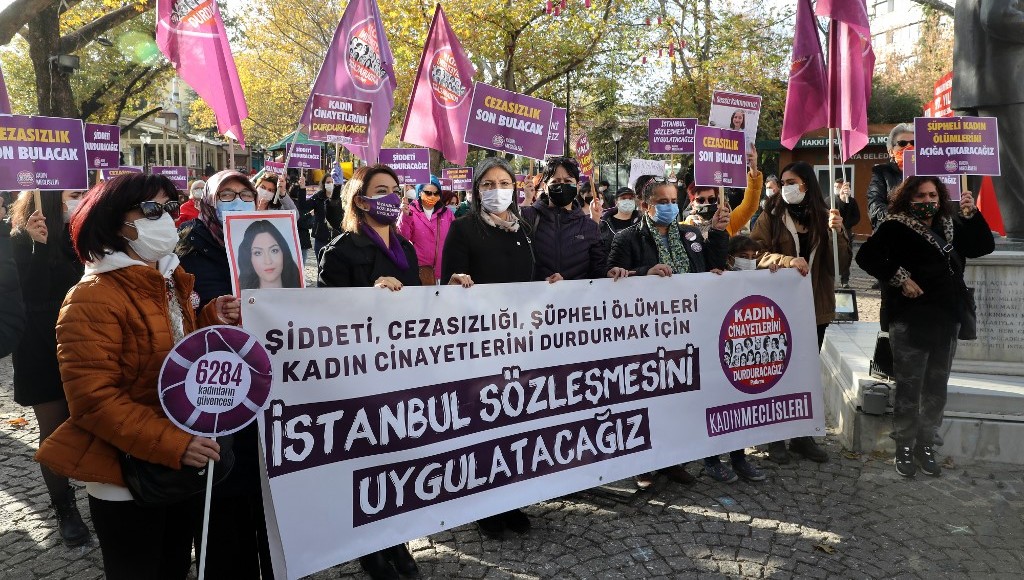The number of femicide cases resulting in a reduced sentence handed down to the male murderer has increased since Turkey’s withdrawal from the Istanbul Convention in early 2021, the Cumhuriyet daily reported on Thursday, citing the representative of a women’s rights organization.
The Council of Europe Convention on Preventing and Combating Violence against Women and Domestic Violence, better known as the Istanbul Convention, is an international accord designed to protect women’s rights and prevent domestic violence in societies and was opened to the signature of member countries of the council in 2011.
Despite opposition from the international community and women’s rights groups, Turkish President Recep Tayyip Erdoğan issued a decree in March 2021 that pulled the country out of the international treaty, which requires governments to adopt legislation prosecuting perpetrators of domestic violence and similar abuse as well as marital rape and female genital mutilation.
Dilber Sünnetçioğlu from the We Will Stop Femicide Platform (KCDP) told Cumhuriyet that the exit of Turkey — where 19 women were killed by men in May alone, with 16 more dying under suspicious circumstances — from the convention encouraged male perpetrators, especially for resulting in an increase in femicide trials where the killer gets a reduced sentence due to alleged provocation.
Article 29 of the Turkish Penal Code (TCK), which stipulates a reduced sentence for crimes committed “in a state of anger or severe distress caused by provocation,” is often used to reduce sentences for men accused of femicide on the grounds that the victim provoked the murder with her actions.
“Judges should be impartial when making a decision. They shouldn’t have a sexist approach. For a while some men threatened women with whom they had disagreements, saying, ‘I will kill you like [her ex-husband killed] Emine Bulut.’ The [reduced] sentences given [to perpetrators] cause femicides to increase,” Sünnetçioğlu said.
Bulut was stabbed to death in broad daylight by her former husband Fedai Varan in the central Anatolian city of Kırıkkale in 2019.
Shortly after Bulut’s death, it was discovered that she had sought help from the police hours before her death, fearing her estranged spouse would harm her. Yet, the police did not launch any formal investigation into her complaint and did not make any official application to the prosecutor’s office for her protection. Bulut was sent home only to be murdered a few hours later.
Sünnetçioğlu further said that femicides had become much more brutal lately, adding that the perpetrators had pushed women down from balconies and the rooftops of residences to make the murder look like a suicide so as to avoid punishment.
“In other words, most of the suspicious female deaths are actually femicides,” she underlined.
Commenting on the legal process started in April by Turkish authorities to close down the KCDP, Sünnetçioğlu said: “Instead of catching the murderers, they are trying to shut down our association. The [real] reason for the closure case is to silence the voices of women [in Turkey]. They call us dishonest. If it is dishonest to stand by a woman who receives death threats and is subjected to violence, [then] yes, we are dishonest.”
Femicides and violence against women are serious problems in Turkey, where women are killed, raped or beaten every day. Many critics say the main reason behind the situation is the policies of the Justice and Development Party (AKP) government, which protects violent and abusive men by granting them impunity.

